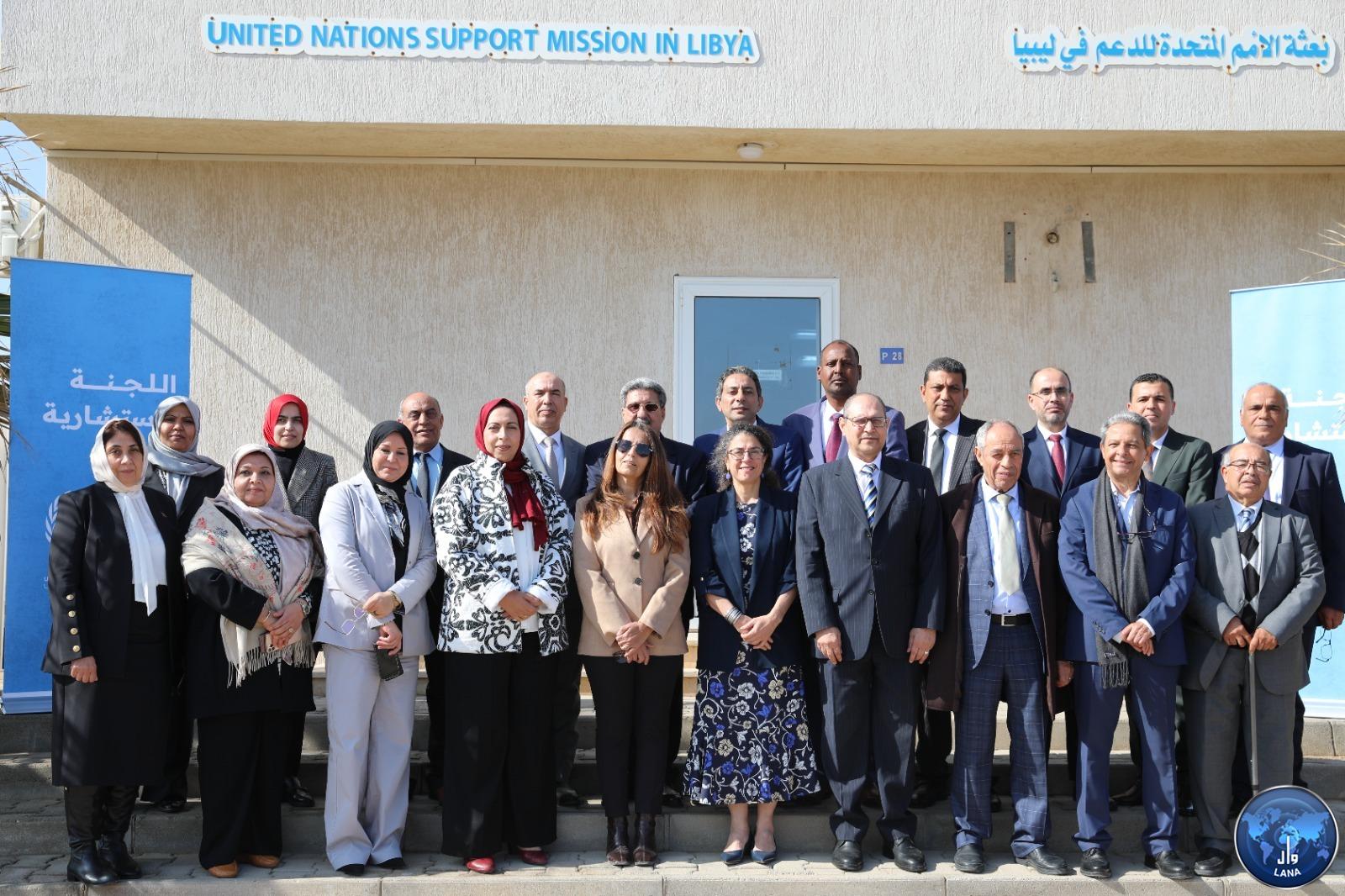The Advisory Committee meetings begin, and Khoury believes that its work will not be easy, but it is important
Pulbished on:
Tripoli, February 09, 2025 (LANA) - The first meetings of the Advisory Committee, which the mission recently announced its formation as a step in the political process to address the deadlock in the Libyan crisis, were launched at the headquarters of the United Nations Support Mission in Tripoli today, Sunday.
During the opening of the meeting, the Deputy Special Representative of the Secretary-General welcomed the members of the Advisory Committee and highlighted the main role of the Committee as part of the comprehensive political process, with Libyan ownership and leadership, which was established to break the current political deadlock, noting that the work of the Committee is not easy, but it is important.
She said that the Advisory Committee is part of the comprehensive political process between the Libyans that I announced in my briefing to the Security Council in December in order to overcome the current political deadlock in Libya, and the Mission formed this committee in accordance with paragraphs 2 and 5 of Security Council Resolution 2755 of 2024, indicating that the Committee will develop technically sound and politically applicable proposals to resolve the outstanding controversial issues in the electoral framework in order to enable the holding of elections.
Khoury expected that the results of the committee's deliberations would be useful for the subsequent stages of the political process and would support decision-makers and Libyan institutions to overcome the current political impasse, and that it is not a decision-making body, nor does it replace any of the existing institutions.
She pointed out that the committee's work, which we hope will end in the shortest possible time, will build on existing Libyan frameworks and laws, including the Libyan Political Agreement, the Libyan Political Dialogue Forum Roadmap, and the electoral laws of the (6+6) Committee, expressing hope that this committee, through the expertise and competence of its members, will achieve the desired goal and be a fruitful platform for constructive discussions and proposing practical and politically implementable options that pave the way for holding national elections.
In her speech, Khoury addressed the committee members, saying, “You have been chosen as members of this committee, and invited to participate based on your professionalism and experience in legal, constitutional and electoral issues, your ability to reach compromises and your understanding of the political challenges facing Libya. We need your collective wisdom, consideration of past experiences and learning from them to determine the way forward.”
Khoury pointed out to the committee members that the issues are not only complex, but also vulnerable to political exploitation in a highly polarized context such as the reality of Libya today, and our collective responsibility is to maintain the integrity of this committee by focusing on the task entrusted to it, putting the national interest first, and rising above partisan interests, noting that the transitional structures in Libya are collapsing under the weight of political polarization and the lack of a clear project for a permanent system of government. The democratic legitimacy gained after the revolution is rapidly fading.
Stephanie Khoury called for thinking honestly and frankly about the reasons that prevented the success of the presidential and parliamentary elections in December 2021, in order to help overcome the obstacles that is preventing elections today, she warned of the need to learn from the past so that we do not make the same mistakes in the future. There must be a real focus on comprehensively addressing the obstacles that prevent the country from reaching parliamentary and presidential elections.
Khoury stressed that the mission's goal is to come up with options that will help facilitate the resolution of the outstanding political disputes related to the elections and support Libyan institutions in holding comprehensive and credible national elections within a realistic time frame while maintaining Libya's fragile stability, and that the advisory committee is the first step in this endeavor.
(LANA)




